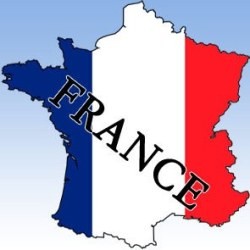French Senate Votes in Favor of Shared iPoker Liquidity

France has moved a step closer to improving the competitiveness of its online poker industry after the country’s Senate passed three amendments to its online gambling laws, one of which will allow gambling companies to share their poker players with those of other European countries.
Ring-fenced Market Unviable
France’s segregated player pool has resulted in shrinking revenues and a declining poker market over the past few years. In the meantime, French politicians have stubbornly refused to contemplate requests to share liquidity with those of other European countries, while president of the French regulator ARJEL, Charles Coppolani, preferred to see poker as a game “too complicated” for younger players, and termed it a passing “fad” when he took over office in 2014. Nevertheless, Coppolani still continued lobbying for a shake up of the industry, and following the Senate’s positive vote to pass amendments to the Digital Bill, announced that he wholeheartedly welcomed the news.
Amendments to Digital Bill
While two of the amendments are specifically concerned with data availability, and gambling dispute mediation, the third amendment grants ARJEL the authority to establish shared online poker player pools with other European jurisdictions. As an extract from the measure explains:
“The steady decline of revenue from online poker games can be explained by the fact that the partitioned French regulated market is abandoned by players, who turn to illegal operators that offer poker tables with global action that are more attractive. The fact is, the more players a poker table or tournament has, the greater the reward, and the more attractive the site is.”
Important Restriction
There is one important restriction to the amendment, though, namely that shared liquidity compacts can only be agreed between EU countries that already offer regulated online poker. While that is not a problem for countries such as Italy and Spain which currently have ring-fenced markets of their own and in the past have expressed an interest in sharing liquidity, a problem arises, however, when one considers the position of PokerStars in the individual countries.
PokerStars.com is currently licensed by the Isle of Man Gambling Supervision Commission (GSC), which is not an EU or EEA country. French players might therefore only be permitted to play against people from sites such as PokerStars.eu, PokerStars.uk, PokerStars.es, and PokerStars.it, but not those to be found on PokerStars.com that welcomes players from the rest of the world. PokerStars.eu and PokerStars.uk would also need to excluded in order to comply with the proposed changes.
A Cruel Market
The French online poker market currently consists of nine operators, with Winamax.fr leading the way with an average of 1,050 cash game players over a 7-day period, followed by PokerStars.fr (900), partypoker.fr (400), and iPoker.fr (260). While the numbers are roughly comparable to those of global operators such as the iPoker network, PokerStars.it, and PartyPoker, by limiting its market to just those people located within the country, France has severely limited its scope for growth.
In addition, the French market has also become dominated by just three operators which control around 90% of the online poker traffic, namely the aforementioned Winamax, PokerStars and PartyPoker. Meanwhile, the country has seen numerous French-licensed sites quit the market altogether due to its restrictive environment, while last month the Betclic Everest Group was forced to merge its French iPoker website, EverestPoker.fr, with its other brand Betclic.fr in order to remain competitive.
Change Can’t Come Soon Enough
In 2015, France’s online poker revenues shrank by 4%, representing five consecutive years of negative growth for the country. Similar to France, Spain, has also reported a contracting market, with revenues currently lower by 40% compared to when regulation was passed back in 2012. The president of Spanish iGaming trade group Jdigital, Sacha Michaud, has since lamented that the Spanish poker market is currently “something much less fun and engaging” for recreational and professional players alike. As a result, Spain has seen more than 200 of its talented poker players relocate to other countries in order to ply their trade in a more accommodating online poker playing environment.
When Will The Changes Be Made?
While the French Senate voted in favor of amending the country’s Digital Bill, the amendments’ wording still needs to be made compatible with that of the text already approved by politicians in France’s lower house, the National Assembly. It will then be presented to the National Assembly once more before it can become law.










